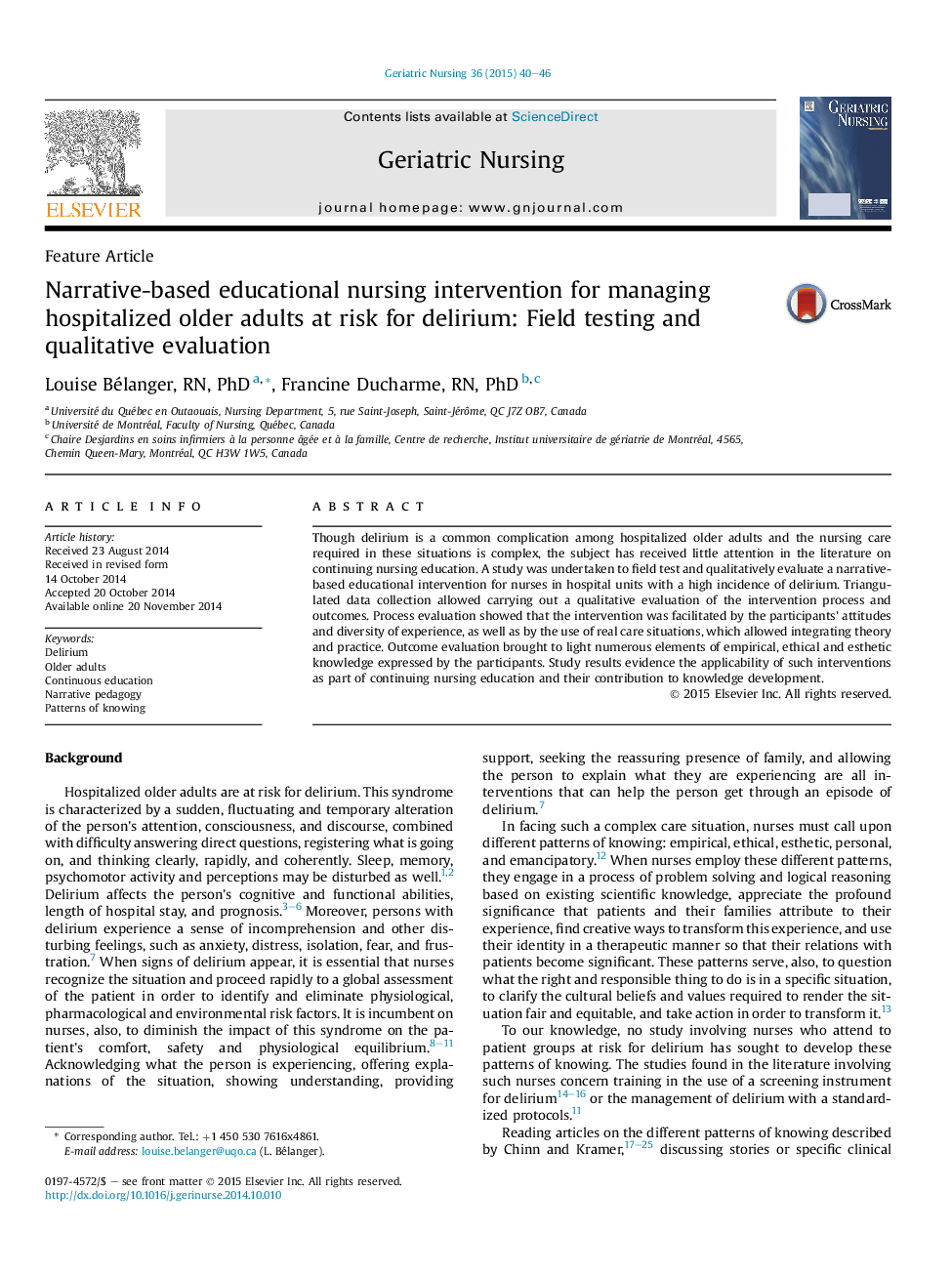| Article ID | Journal | Published Year | Pages | File Type |
|---|---|---|---|---|
| 2650138 | Geriatric Nursing | 2015 | 7 Pages |
•We study in-depth the innovative educative intervention based on narrative pedagogy.•Diversity of participants' experiences, and use of real care situations are intervention facilitators.•Several empirical, ethical and esthetic patterns of knowing are expressed by participants.•Family presence is a useful way to transform the experience lived by patients.•The intervention is potentially transferable to different populations of nurses.
Though delirium is a common complication among hospitalized older adults and the nursing care required in these situations is complex, the subject has received little attention in the literature on continuing nursing education. A study was undertaken to field test and qualitatively evaluate a narrative-based educational intervention for nurses in hospital units with a high incidence of delirium. Triangulated data collection allowed carrying out a qualitative evaluation of the intervention process and outcomes. Process evaluation showed that the intervention was facilitated by the participants' attitudes and diversity of experience, as well as by the use of real care situations, which allowed integrating theory and practice. Outcome evaluation brought to light numerous elements of empirical, ethical and esthetic knowledge expressed by the participants. Study results evidence the applicability of such interventions as part of continuing nursing education and their contribution to knowledge development.
